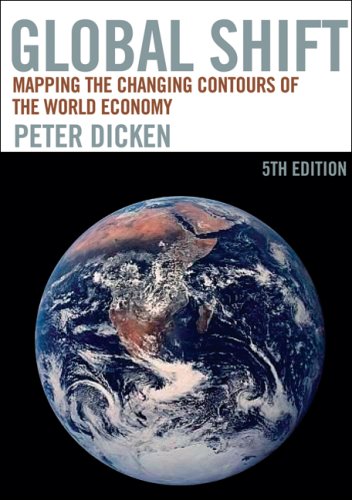Here is a recent presentation (that I recorded) by Emeritus Professor Hilbourne Watson. It is titled "Crisis of global capitalism, global white supremacy, and the new nationalism" and was given at the 2018 conference of the Global Studies Association-North America at Howard University in Washington, D.C.
Here is Hilbourne's Google scholar page and Amazon page.
Here is the abstract for his talk:
The study of social change is dominated by philosophical individualism and methodological nationalism that fragment the social, treats the individual as the irreducible unit of analysis, makes the sum of the parts greater than the whole, and reduces social relations between humans to technical relations between things. Contrastingly, I offer a historical materialist analysis of global white supremacy (GWS) and the new nationalism, and subsume them under the crisis of global capitalism, as reflected in overaccumulation, social polarization, legitimation and sustainability, and the impacts on working classes and other exploited and oppressed groups. I argue that GWS naturalizes and racializes world history, culture, politics, and social existence; historicizes nature; foments reactionary identitarian tendencies; doubles as the dominant norm of world order, and represents a politico-ideological expression of power relations, beyond the white somatic norm. ”
Showing posts with label Historical Materialism. Show all posts
Showing posts with label Historical Materialism. Show all posts
Monday, June 11, 2018
Thursday, March 13, 2014
Interview with Grazia Ietto-Gillies published in the journal Critical Perspectives on International Business
 Published in the new special 10th anniversary issue of the journal Critical Perspectives on International Business is an interview that I conducted with political economist Grazia Ietto-Gillies. She is emeritus professor of applied economics at London South Bank University in the UK and the author of numerous works on transnational corporations (including Transnational Corporations and International Production: Concepts, Theories and Effects, which was just published in its second edition).
Published in the new special 10th anniversary issue of the journal Critical Perspectives on International Business is an interview that I conducted with political economist Grazia Ietto-Gillies. She is emeritus professor of applied economics at London South Bank University in the UK and the author of numerous works on transnational corporations (including Transnational Corporations and International Production: Concepts, Theories and Effects, which was just published in its second edition). My interview with her can be read here.
Tuesday, July 30, 2013
Crisis, the Emerging New Stage of Capitalism, and the Need of a Transnational Class Strategy for Social Emancipation
Above is a talk and brief interview with Dr. George Liodakis that I recorded in September of 2011 at the first conference of Network for Critical Studies of Global Capitalism (NCSGC) in Prague, Czech Republic. His paper was titled "Crisis, the Emerging New Stage of Capitalism, and the Need of a Transnational Class Strategy for Social Emancipation." Professor Liodakis teaches at the Technical University of Crete, Greece. Among many other publications, he is the author of the book: "Totalitarian Capitalism and Beyond" (London: Ashgate, 2010).
Tuesday, June 7, 2011
A Review of Peter Dicken's Global Shift: Mapping the Changing Contours of the World Economy, 5th Edition
Jeb Sprague
Widely cited and read by scholars and students of
globalization, Peter Dicken’s Global Shift is best known for its concise examination
of structures of the global economy. Now in its 5th edition with over 250 newly
designed figures and graphs, few texts are as effective in showing the
incontrovertible changes undergone in production, distribution and consumption.
Written prior to the crisis of recent years, it remains a useful guide for
understanding the truly global nature of today’s world economy. However, where
Dicken does a remarkable job in dissecting the structure of the global economy,
he has little or nothing to say about how the state and economic structure are
grounded in broader class and social relations.
Dicken starts, in Parts 1 and 2, by laying out
distinct ways in which scholars conceptualize globalization and the importance
of technological and networked development, as well as the role of
transnational corporations (TNCs) and national states. Part 3 describes
shifting economic sectors in the real economy: agriculture, autos, computers,
textiles and logistical infrastructure. Included within Part 3 is a chapter on
finance, but this is just 29 pages in a 599-page book. This chapter covers the
spread of financial services but has little discussion of derivatives (p. 386)
and nothing on the role of central banks or stock markets. Most importantly
though, for the purposes of this review, how does Global Shift treat the role
of social agency?
Friday, April 1, 2011
Toward a Theory of Global & Local Proletarian Fractions
Below is a three part video of UCR sociology graduate student Jason Stuna speaking about his theory of global proletarian fractions. I recorded this during the Fall of 2009 during his talk at the 'Historical Materialism Research Group (which existed for a year or so) at UCSB. For more on this, see his article here.
Subscribe to:
Posts (Atom)

